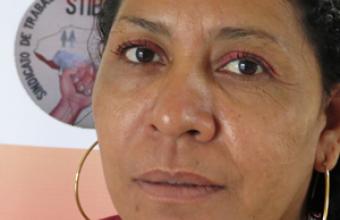 Waldina Ayestas is 44 years old. A single mother of three children, she has worked for 13 years in the packaging area of the Corozal 2 farm, owned by Chiquita Honduras, where she developed carpal tunnel syndrome. Although her life has changed forever, neither the multinational cooperation nor the health authorities will accept that this is a work-related illness.
Waldina Ayestas is 44 years old. A single mother of three children, she has worked for 13 years in the packaging area of the Corozal 2 farm, owned by Chiquita Honduras, where she developed carpal tunnel syndrome. Although her life has changed forever, neither the multinational cooperation nor the health authorities will accept that this is a work-related illness.
Waldina Ayestas has carried out various tasks in the packaging area, including selecting, stamping and packing the bananas. She spent years repeating the same movements with no opportunity to rotate to a different post.
After two years of working on the farm, the pain began.
“My hands were hurting, they would go numb and become inflamed. At night I could feel a burning sensation all over my right arm and I couldn’t sleep. I was scared because I didn’t know what was happening,”
Waldina insists that when she started working she was in perfect physical health, and that her illness is directly related to her work.
“When they hired me they did all the tests and they couldn’t find any health problems. This illness has changed my life. No matter what the company says, I know I developed this on the farm” she stated.
The doctors diagnosed carpal tunnel syndrome and she had to undergo surgery. Two months later she was already back at work.
“They wouldn’t let me fully recover and they didn’t want to relocate me. I went back to doing the same movements that made me ill and now I feel worse than I did before the operation,” said Waldina, showing me her hand and her inflamed arm.
The Chronicle of an Illness Foretold
The manufacturing and agro industrial sectors are where most workers develop musculoskeletal disorders. However, there are very few cases in which employers and health authorities recognise that these illnesses are work-related.
 In the case of Waldina Ayestas and many of her colleagues, it’s the ‘Chronicle of an Illness Foretold.’
In the case of Waldina Ayestas and many of her colleagues, it’s the ‘Chronicle of an Illness Foretold.’
“I asked my line-manager to relocate me on several occasions but I wasn’t listened to. He says that unless I have a medical request I have to continue in my post. I work from seven in the morning until seven at night and I can’t take the pain anymore. I can’t even do housework so I have to pay someone to help me in the house,” she said.
Waldina also explained that there are 16 more workers in the same situation that have already undergone operations.
“Very soon even more people will be affected. It’s only a matter of time,” she warned.
The Importance of The Union
Waldina and her work colleagues are affiliated to the Labour Union of the Tela Railroad Company (Sitraerco), which is a member of the Honduran Agroindustrial Workers’ Federation (Festagro).
“Being affiliated to the union has been fundamental. They have never left us alone in this fight,” said the Chiquita Honduras worker.
She also thanked IUF Latin America, USTABH , the Honduran Network of Manufacturing Unions and Festagro for coordinating a workshop on Occupational Health and Safety.
“It’s been enlightening because it’s helped us to understand the importance of raising awareness about these problems, as well as encouraging us to come together to take on the exploitation which is making us ill,” concluded Waldina Ayestas.
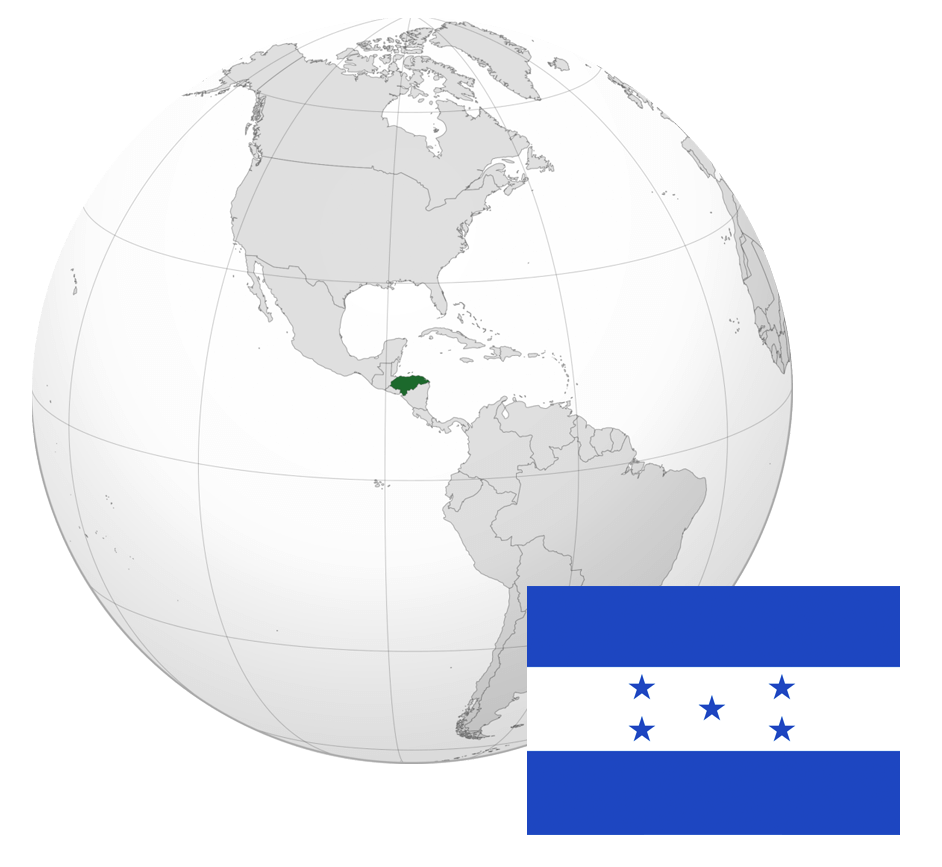
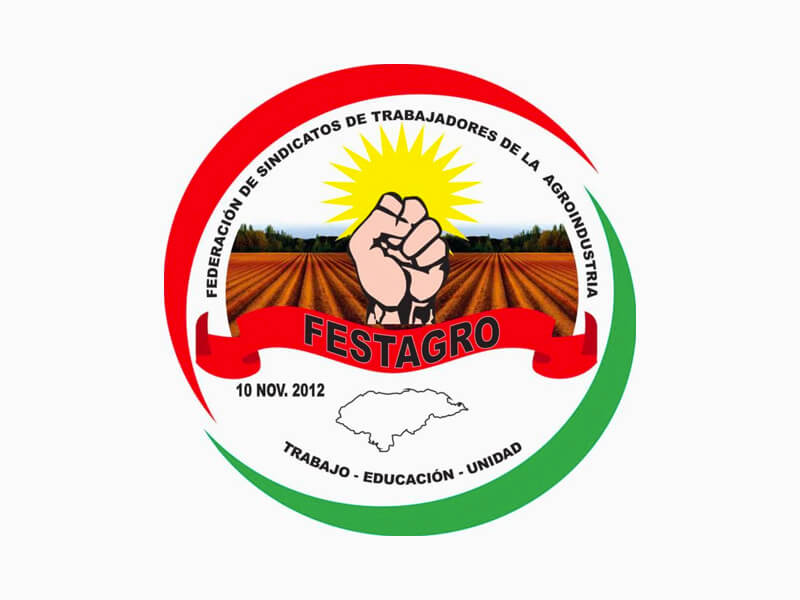
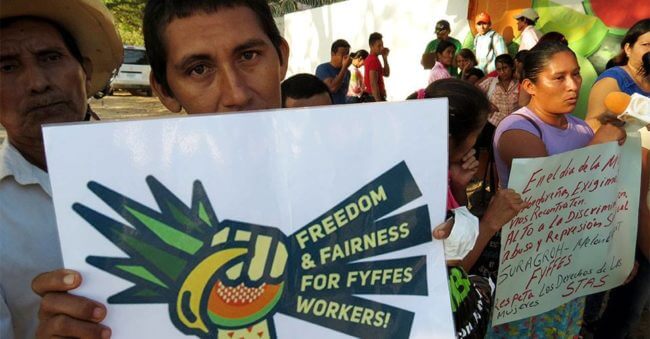
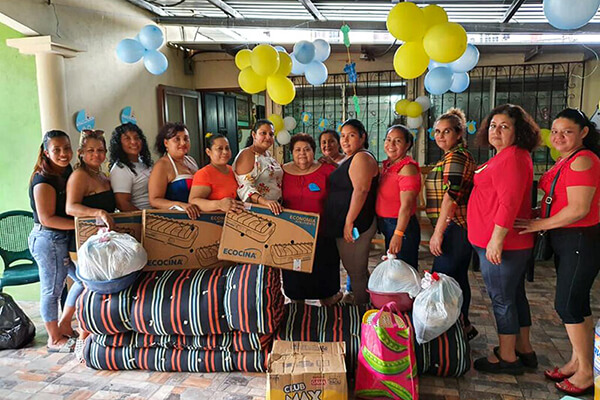
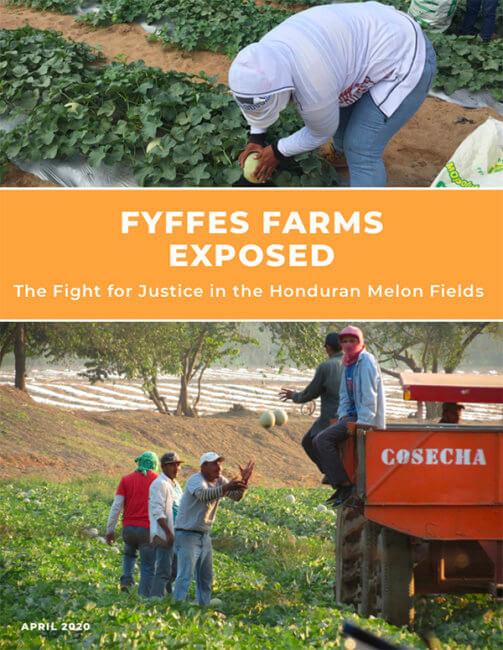
 Waldina Ayestas is 44 years old. A single mother of three children, she has worked for 13 years in the packaging area of the Corozal 2 farm, owned by Chiquita Honduras, where she developed carpal tunnel syndrome. Although her life has changed forever, neither the multinational cooperation nor the health authorities will accept that this is a work-related illness.
Waldina Ayestas is 44 years old. A single mother of three children, she has worked for 13 years in the packaging area of the Corozal 2 farm, owned by Chiquita Honduras, where she developed carpal tunnel syndrome. Although her life has changed forever, neither the multinational cooperation nor the health authorities will accept that this is a work-related illness. In the case of Waldina Ayestas and many of her colleagues, it’s the ‘Chronicle of an Illness Foretold.’
In the case of Waldina Ayestas and many of her colleagues, it’s the ‘Chronicle of an Illness Foretold.’